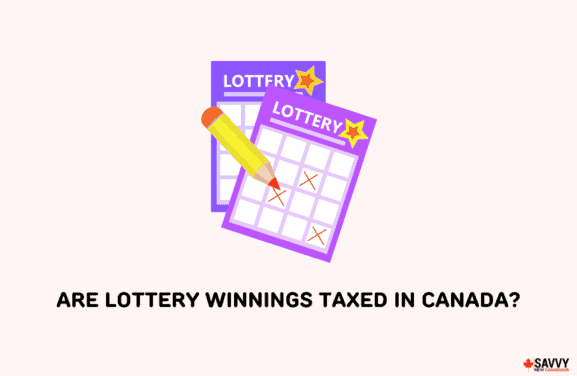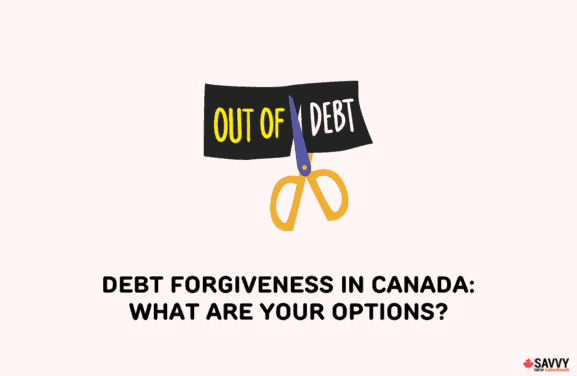A Tax-Free Savings Account (TFSA) is a government-registered account you can use to grow your savings or investments without paying taxes on your gains.
What this means is that all capital gains, interest, or dividends earned remain tax-free for life.
That said, there are some situations where your TFSA may become taxable. This could happen because you over-contributed or invested using non-qualified investment assets.
Learn how TFSAs work, when they are taxable, and how to file your 2023 income tax and benefit return.
TFSAs Are generally Not Taxable.
One big advantage you get with a TFSA is that you don’t pay taxes to the government on the growth realized in the account.
For example, if you purchase stocks within your TFSA that double in price when you sell them, you don’t pay taxes on the capital gains.
This tax advantage also applies to the income or interest you earn on bonds and savings or the dividends paid by your ETF or stock portfolio.
TFSAs also simplify your tax filing because you don’t need to worry about TFSA tax slips when completing your return.
All that said, there are some situations where your TFSA may become taxable:
1. Over Contributing to a TFSA
If you exceed your TFSA contribution limit, the CRA will charge a 1% monthly penalty on the excess contributions.
If the government thinks you deliberately over-contributed to your TFSA, it may also assess a 100% tax on income you have earned through the excess contribution.
2. Non-Resident TFSA Contribution
If you contributed to a TFSA while deemed a non-resident, the contributions are subject to a 1% monthly tax penalty.
This tax is applied until the excess amount is withdrawn or the individual becomes a resident of Canada.
3. Holding Non-Qualified and Prohibited Investments
Investing in non-qualified or prohibited investments will cost you dearly, with a 50% tax on the fair market value of the investment and up to a 100% “advantage” tax on the income earned by the investment.
4. Holding Foreign Stocks
When you hold foreign stocks that pay dividends in your TFSA, the dividend income may be subject to a withholding tax.
For example, if you buy U.S. stocks in your TFSA, a 15% tax is levied by the Internal Revenue Service (IRS) on any dividends you are paid.
If these same stocks are held in your RRSP, this withholding tax is not applied.
5. Day Trading With Your TFSA
Day trading involves buying and selling financial securities after holding them for a short period of time, often on the same day.
If the CRA observes you are frequently trading within your TFSA, i.e. day trading, it may consider you to be “carrying on a business” and tax any income at your marginal tax rate.
Are TFSA Contributions Tax Deductible?
Unlike the Registered Retirement Savings Plan (RRSP), contributions to a TFSA are not tax-deductible.
That is, you cannot deduct the amount you contribute from your income to lower your taxable income for the year.
Since TFSA contributions are made using after-tax income, you also don’t pay taxes on your investment income, unlike RRSPs.
TFSA Overview
A TFSA is a tax-sheltered investment and savings account you can use for any purpose. Whether it is saving for a down payment on a home, for a car, vacation, or retirement, a TFSA can be an excellent tool for reaching your financial goals.
This account was introduced by the government in 2009, and every year, you get a contribution room if you are 18 or older.
How TFSAs Work
TFSAs can hold many types of investments, such as bonds, stocks, mutual funds, Exchange-Traded Funds (ETFs), and Guaranteed Investment Certificates (GICs). You can also use it as a savings account by holding cash.
When you need funds, you can withdraw from your TFSA without paying taxes on any gains. Even better, you can re-contribute your withdrawals in future years alongside any contribution limits for those years.
The contribution limit for TFSAs in 2024 is $7,000. This means that you can contribute up to $7,000 tax-free. If you have unused contribution room from previous years, then you can add those to your contribution room for this year.
If you have been eligible for a tax-free savings account since its introduction in 2009, your total TFSA contribution limit is now $95,000.
This figure assumes you haven’t made any contributions or withdrawals to date.
You can calculate your TFSA contribution room in 2024 as the total of:
- TFSA dollar limit for 2024
- Unused TFSA contribution limit from previous years
- Any TFSA withdrawals in 2023
You can also check your contribution room using the CRA’s MyAccount portal or contact the agency at 1-800-267-6999 to request a TFSA Room Statement.
How To File Your Taxes in 2024
You can file your 2023 income tax return using the following:
- Online tax software certified by the CRA and Revenu Quebec
- Paper tax forms
- Community volunteer tax clinics
- CRA’s File My Return service, if eligible
- Virtual expert assistance, e.g. TurboTax Assist and Review
Filing your taxes electronically using NETFILE-certified tax preparation software means you receive your tax refund faster—usually within 2 weeks compared to up to 8 weeks when you file a paper return.
TurboTax Canada is one of the best tax software you can use for the 2024 tax season.
Some of the benefits it offers include:
Tailored To You: TurboTax starts by asking questions about your life, then automatically includes the right forms in your return.
Maximum Refund: Your taxes will be completed using all available tax credits and deductions you qualify for, so you get the maximum refund possible.
Guaranteed Accuracy: TurboTax guarantees 100% accuracy, so you can rest assured that your return is without errors.
Step-by-Step Guidance: Completing your return is fast and easy with step-by-step guidance and prompts along the way.
TurboTax also supports the CRA’s “Auto-fill my return,” so portions of your tax return are filled out automatically using data already available to the CRA. This can save you time.
Access To Tax Experts: If you need assistance completing your return, you can get expert help and even tax audit support. For example, with TurboTax Assist and Review service, you get help along the way and a final review before you file. You can also add an audit defence for an extra fee.
If you go for the TurboTax Full-Service option, an expert does your taxes for you from start to finish and has your back with Audit Defence at no extra cost.
TurboTax supports various tax scenarios, including self-employment taxes, rental income, and investments.




